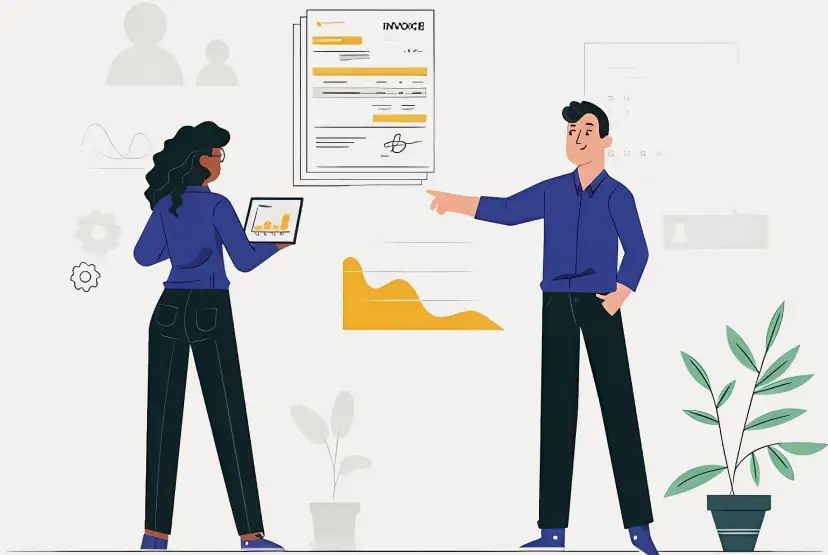Corporate Taxes for Florida Businesses
In the dynamic landscape of corporate taxation, Florida businesses require strategic planning and compliance to thrive. At My Accounting Now, we understand the complexities of corporate tax laws. Our services are designed to optimize your tax position, ensuring compliance while minimizing liability. We provide end-to-end support, from strategic planning through to filing, to ensure your business benefits from every available advantage.
Request a Free Consultation
Income Tax Return for Businesses in Florida
All businesses are required to file an annual income tax return with the IRS. The process varies slightly depending on the business type — for example, partnerships are not taxed at the entity level but must file an informational return (Form 1065) to report income, deductions, and other financial details, while the individual partners report their share of the income on their personal tax returns.
The specific tax form you must file depends on your business structure — whether it’s a Limited Liability Company (LLC), S Corporation, C Corporation, Partnership, or Sole Proprietorship — as each type has its own filing requirements and tax treatment under federal law.
The federal income tax system operates on a pay-as-you-go basis, meaning that taxes must be paid as income is earned or received throughout the year, rather than in a single payment at the end of the year. These ongoing payments are known as Estimated Taxes, and they help businesses and individuals stay compliant and avoid potential penalties for underpayment.

Important filing dates for companies:
This category includes corporations, including LLS, C Corps and S Corps.
- Jan. 31, employers must send W-2 forms to employees and send certain 1099 forms.
- March 15, partnerships, multi-member LLCs, and S corporations must pay taxes.
- April 15, C corporations must pay taxes.
- Sept. 15, deadline for extended partnership and S corporation returns.
- October 15, last deadline for extended corporation returns.

Employment Taxes
When your company is ready to hire employees, you as the employer have certain responsibilities like employment tax, that must be paid and forms you must file. Employment taxes include the following:
— Social security and Medicare taxes
— Federal income tax withholding
— Federal unemployment (FUTA) tax
All employers are required to make federal payroll tax payments to the government and at the same time, file a report. Companies that have direct employees or hire contractors are required to yearly report to the IRS the payments made to those employees or contractors using the forms W2 and 1099 respectively. Rules can be a bit complex for a small company owner, that is why this service is often outsourced.
Handling payroll tax responsibilities involves the following:
- Federal and state taxes are paid and reported
- Income reporting (forms W2), amounts withheld (forms W4), and amounts paid on behalf of employees (forms 940 & 941) and contractors (Form 1099) are correct and file or send on time.
- Required federal and state records are kept
Estimated tax
Generally, you must pay taxes on income, including self-employment tax, by making regular payments of estimated tax during the year. Even if you made partial payments throughout the year, you may still need to pay any tax due when you file your annual tax return. These payments are like the tax withheld from any individual’s pay/salary.
For most businesses and individuals, Estimated Tax Payments are made four times per year. The standard due dates are as follows:
- 1st Payment: April 15 — for income earned from January 1 through March 31
- 2nd Payment: June 15 — for income earned from April 1 through May 31
- 3rd Payment: September 15 — for income earned from June 1 through August 31
- 4th Payment: January 15 (of the following year) — for income earned from September 1 through December 31
Excise taxes
Are taxes imposed on goods, services and activities. Excise taxes may be imposed on the manufacturer, retailer or consumer, depending on the specific tax. Examples of excise taxes for which may include:
- Petroleum Tax
- Superfund Chemical Excise Taxes Reinstated
- Excise Tax on Coal
- Kerosene Used in Aviation - Form 720 Tax Liability Reporting
- Extended Fuel Tax Credits
- Sports Wagering
- Heavy Highway Vehicle Use Tax
- Excise Tax on Indoor Tanning Services
Self-Employment Tax
Self-employment tax accounts primarily for Social Security and Medicare taxes for individuals who work for themselves. It is like the Social Security and Medicare taxes withheld from the paychecks of direct company employees.Self-employed individuals must figure the amount using Schedule SE (Form 1040 or 1040-SR). Also, you can deduct the employer-equivalent portion of your SE tax in figuring your adjusted gross income. Wage earners cannot deduct Social Security and Medicare taxes.
The self-employment tax rate is 15.3%. The rate consists of two parts: 12.4% for social security and 2.9% for Medicare.
We are approved and qualified by the IRS to e-file!

Frequently asked questions
What is the employer FICA rate?
The employer FICA rate is 7.65%. Employees pay an additional 7.65% FICA tax, and self-employed workers pay the full 15.3%
How do I file a tax extension?
The federal income tax filing deadline is April 18. If you need more time, you can get an automatic income tax extension by filing IRS Form 4868. This gets you until Oct. 17, to file your tax return.
Filing an extension give me more time to pay?
No, when you file the IRS Form 4868 you get more time to present the taxes, but it doesn’t give you more time to pay your taxes. Anything you owe after the deadline is subject to interest and a late-payment penalty — even if you get an extension. You might be able to catch a break on the late-payment penalty if you’ve paid at least 90% of your actual tax liability by the deadline and you pay the rest with your return.
Why happens if I do not make estimated tax payments?
If you do not make any payments or skip a payment during the fiscal year, the IRS might charge you a penalty. The IRS can charge you a penalty even if you are owned a refund.
What is a tax extension and how do I request one?
A tax extension gives you extra time to file your return if you can’t meet the deadline, helping you avoid late-filing penalties. It does not extend the time to pay taxes owed. To request an extension, individuals use Form 4868, while businesses use Form 7004. Remember to pay any estimated taxes by the original deadline to avoid interest and penalties.
When do I file a tax extension and how long does it last?
File the extension by the original tax deadline — typically April 15 for individuals and March 15 for corporations. Extensions usually grant 6 extra months to file for individuals (until October 15), while business extensions vary depending on the entity type.
Contact us for a Free
Accouting Consultation
Centrally located in North Miami, we can attend South Florida's customers with ease.
Miami, FL 33169
